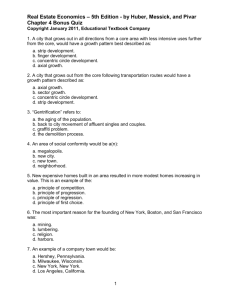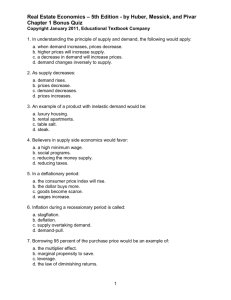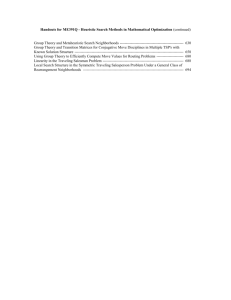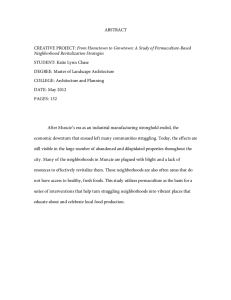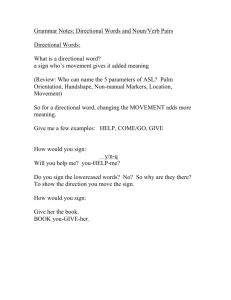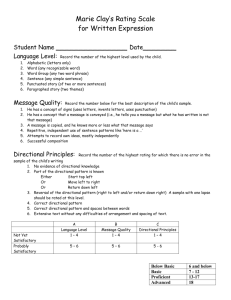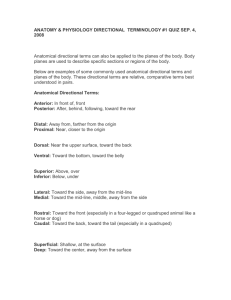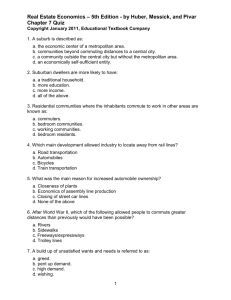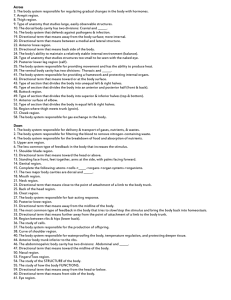Chapter 4 Quiz
advertisement
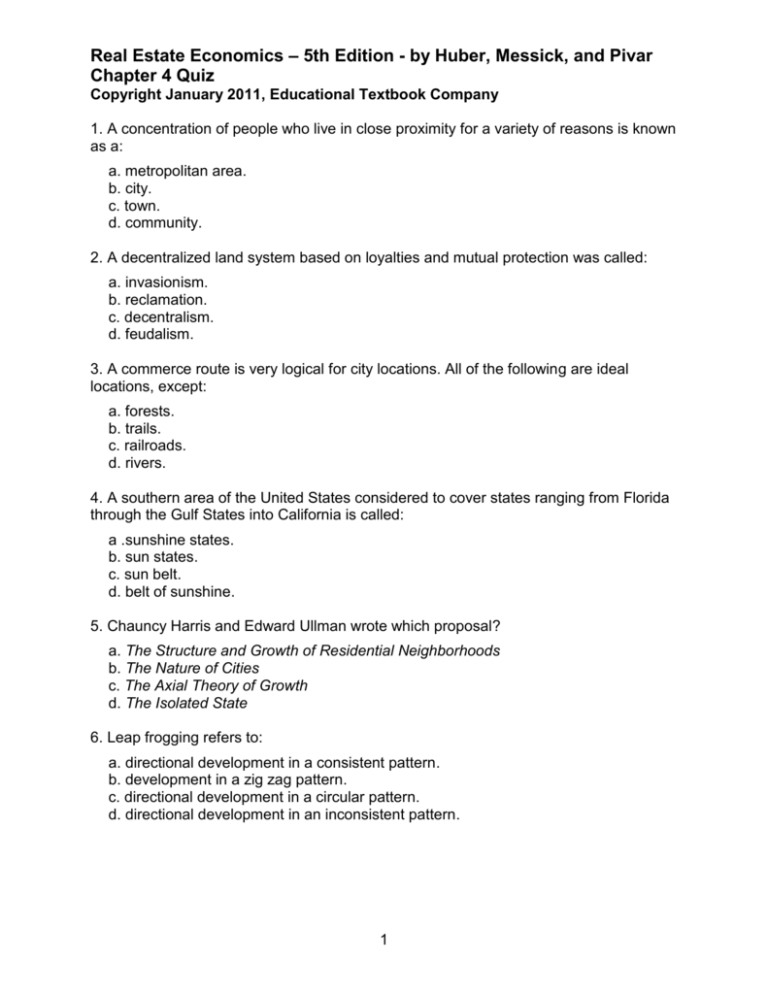
Real Estate Economics – 5th Edition - by Huber, Messick, and Pivar Chapter 4 Quiz Copyright January 2011, Educational Textbook Company 1. A concentration of people who live in close proximity for a variety of reasons is known as a: a. metropolitan area. b. city. c. town. d. community. 2. A decentralized land system based on loyalties and mutual protection was called: a. invasionism. b. reclamation. c. decentralism. d. feudalism. 3. A commerce route is very logical for city locations. All of the following are ideal locations, except: a. forests. b. trails. c. railroads. d. rivers. 4. A southern area of the United States considered to cover states ranging from Florida through the Gulf States into California is called: a .sunshine states. b. sun states. c. sun belt. d. belt of sunshine. 5. Chauncy Harris and Edward Ullman wrote which proposal? a. The Structure and Growth of Residential Neighborhoods b. The Nature of Cities c. The Axial Theory of Growth d. The Isolated State 6. Leap frogging refers to: a. directional development in a consistent pattern. b. development in a zig zag pattern. c. directional development in a circular pattern. d. directional development in an inconsistent pattern. 1 7. All of the following cities would be considered a Megalopolis, except: a. San Francisco. b. Los Angeles. c. Palm Springs. d. New York. 8. Gresham’s Law, in reference to neighborhoods, believes that: a. a neighborhood in economic obsolescence cannot turn around. b. when an area is in change, the poorer use drives out the better use. c. good money drives out bad money. d. neighborhoods do not have to improve. 9. Urban property values are based on: a. property taxes. b. school zones. c. location of the property. d. city proximity. 10. Which of the following in not a ring in the concentric circle theory? a. rural area. b. central business zone. c. middle class housing. d. commercial and warehouse area. 2 Real Estate Economics – 5th Edition - by Huber, Messick, and Pivar Chapter 4 Quiz Answers Copyright January 2011, Educational Textbook Company 1. b (p133) 2. d (p136) 3. a (p137) 4. c (p138) 5. b (p149) 6. d (p151) 7. c (p153) 8. b (p154-155) 9. c (p156) 10. a (p147) 3
